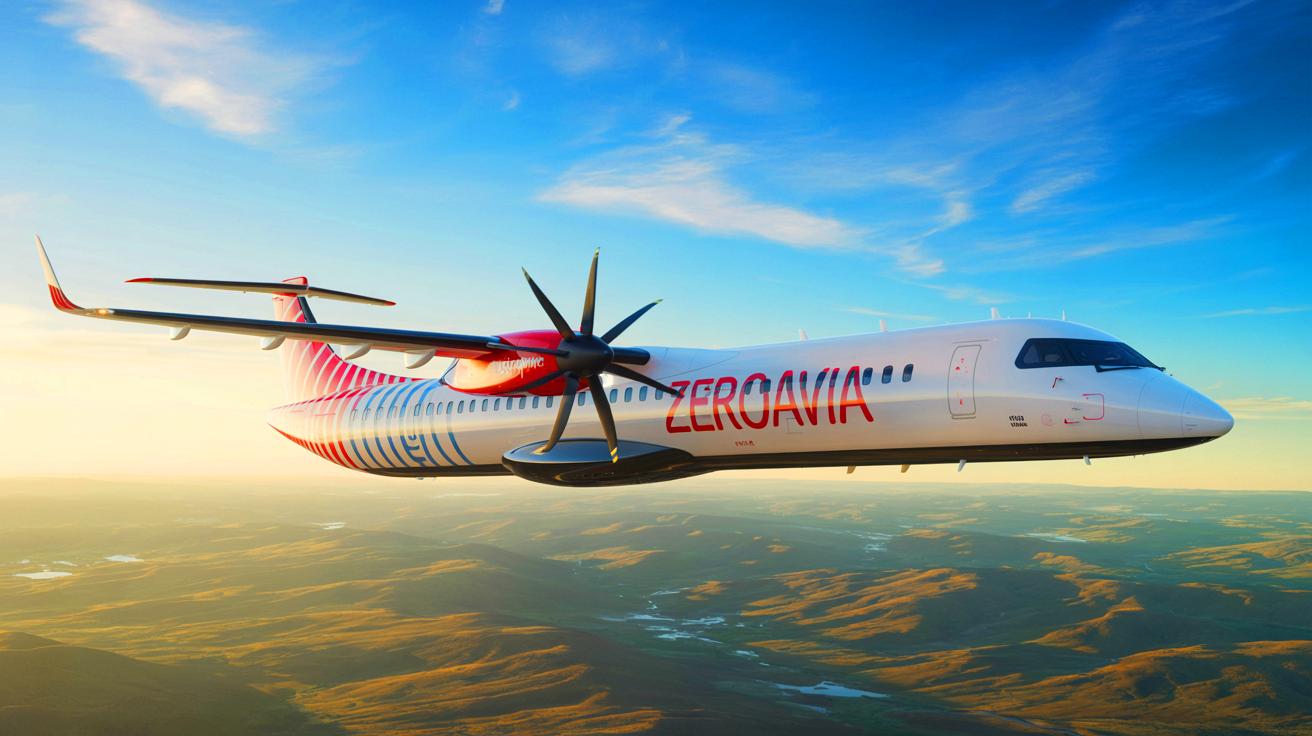| IN A NUTSHELL |
|
Scotland’s regional airline, LoganAir, is embarking on a groundbreaking journey towards sustainable aviation. Partnering with ZeroAvia, the airline aims to integrate hydrogen-electric engines into its fleet, marking a significant step in the aviation industry’s shift towards greener alternatives. This collaboration was announced during the prestigious Paris Air Show, highlighting LoganAir’s commitment to reducing its carbon footprint. By utilizing ZeroAvia’s innovative hydrogen fuel cell technology, LoganAir hopes to set a new standard for zero-emission flights. This initiative not only positions LoganAir as a pioneer in eco-friendly air travel but also paves the way for a more sustainable future in aviation.
The Promise of Zero-Emission Flights
ZeroAvia’s cutting-edge technology revolves around hydrogen fuel cells, which power electric motors to drive aircraft propellers. This process results in zero emissions, with water being the only byproduct. This remarkable innovation could revolutionize the aviation industry by significantly reducing its environmental impact. ZeroAvia’s engines are designed to operate efficiently at lower altitudes, where regional turboprops typically fly, eliminating the formation of contrails and further minimizing their ecological footprint.
LoganAir’s collaboration with ZeroAvia represents a bold move towards adopting this technology, aligning with global efforts to combat climate change. The partnership aims to retrofit LoganAir’s existing aircraft with ZeroAvia’s hydrogen-electric engines, starting with the Cessna Caravan as a testbed. This venture underscores LoganAir’s dedication to sustainable air travel and sets a precedent for other airlines to follow suit in embracing green aviation solutions.
ZeroAvia to Retrofit Cessna Caravan as Launch Platform for ZA600
ZeroAvia has strategically selected the Cessna Caravan as the initial airframe for its ZA600 hydrogen-electric powertrain. This decision underscores the company’s confidence in its technology and its applicability to regional aircraft. Since the first sale of the ZA600 to Jetcruzer International in February, ZeroAvia has amassed over 2,000 preorders, including a noteworthy conditional agreement with United Airlines for 100 units.
The company is actively pursuing certification with the UK Civil Aviation Authority for both its ZA600 and the larger ZA2000 systems, targeting aircraft models like the Twin Otter and ATR series. With LoganAir operating a diverse fleet that includes these aircraft, the airline is well-positioned to leverage ZeroAvia’s technology. LoganAir CEO Luke Farajallah expressed optimism about the partnership, emphasizing the airline’s commitment to a sustainable aviation future and the promising fit between ZeroAvia’s technology and LoganAir’s operational needs.
Fuel Cells Better Suited for Smaller Aircraft Due to Size and Weight Limits
Despite the higher cost of hydrogen fuel compared to kerosene, its increased efficiency may offset overall fuel expenses. While traditional jet engines currently remain more cost-effective, hydrogen fuel cells offer a promising alternative for smaller aircraft. These cells require a larger and heavier system to match the power output of conventional jet engines, making them ideal for regional turboprops, where power density is less critical.
Switching to hydrogen fuel cells eliminates the need for liquid hydrogen storage and complex transportation infrastructure at airports. Additionally, fuel cells have fewer moving parts than traditional engines, potentially reducing maintenance costs. As the technology continues to evolve, the aviation industry could witness a shift towards these more sustainable power sources, furthering efforts to reduce aviation’s carbon footprint and environmental impact.
The Future of Sustainable Aviation
LoganAir’s partnership with ZeroAvia represents a significant milestone in the pursuit of sustainable aviation. By embracing hydrogen-electric technology, the airline positions itself at the forefront of eco-friendly air travel. This collaboration not only enhances LoganAir’s environmental credentials but also sets a benchmark for other regional airlines.
The aviation industry stands at a crossroads, with sustainability becoming an increasingly important focus. As hydrogen fuel cell technology advances and becomes more cost-effective, will other airlines follow LoganAir’s lead and embrace zero-emission flights? The future of aviation may depend on the industry’s willingness to innovate and invest in greener solutions.
Our author used artificial intelligence to enhance this article.
Did you like it? 4.4/5 (24)


